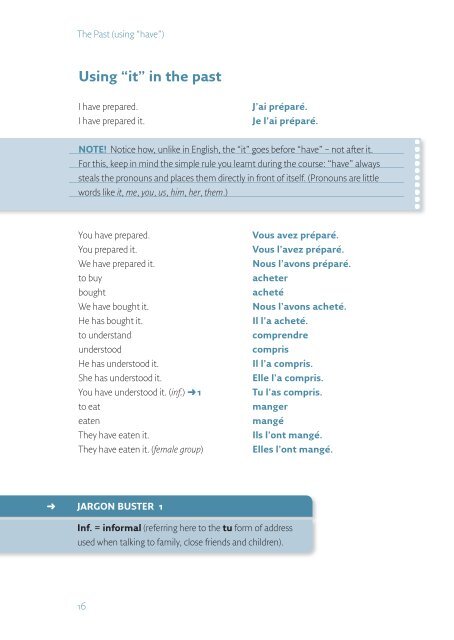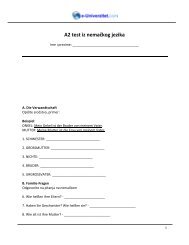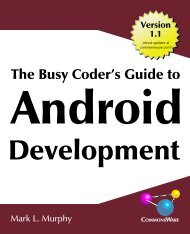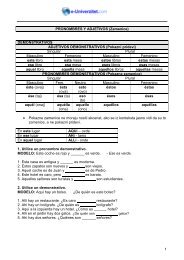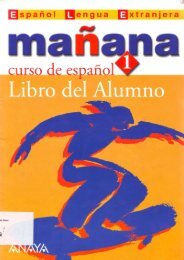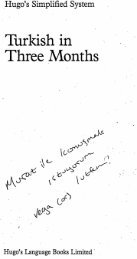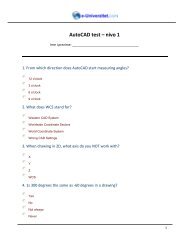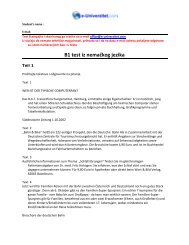Collins Paul Noble French booklet.pdf - Centar za edukaciju i ...
Collins Paul Noble French booklet.pdf - Centar za edukaciju i ...
Collins Paul Noble French booklet.pdf - Centar za edukaciju i ...
Create successful ePaper yourself
Turn your PDF publications into a flip-book with our unique Google optimized e-Paper software.
➜<br />
The Past (using “have”)<br />
Using “it” in the past<br />
I have prepared. J’ai préparé.<br />
I have prepared it. Je l’ai préparé.<br />
NOTE! Notice how, unlike in English, the “it” goes before “have” – not after it.<br />
For this, keep in mind the simple rule you learnt during the course: “have” always<br />
steals the pronouns and places them directly in front of itself. (Pronouns are little<br />
words like it, me, you, us, him, her, them.)<br />
You have prepared. Vous avez préparé.<br />
You prepared it. Vous l’avez préparé.<br />
We have prepared it. Nous l’avons préparé.<br />
to buy acheter<br />
bought acheté<br />
We have bought it. Nous l’avons acheté.<br />
He has bought it. Il l’a acheté.<br />
to understand comprendre<br />
understood compris<br />
He has understood it. Il l’a compris.<br />
She has understood it. Elle l’a compris.<br />
You have understood it. (inf.) ➜1 Tu l’as compris.<br />
to eat manger<br />
eaten mangé<br />
They have eaten it. Ils l’ont mangé.<br />
They have eaten it. (female group) Elles l’ont mangé.<br />
JARGON BUSTER 1<br />
Inf. = informal (referring here to the tu form of address<br />
used when talking to family, close friends and children).<br />
16


